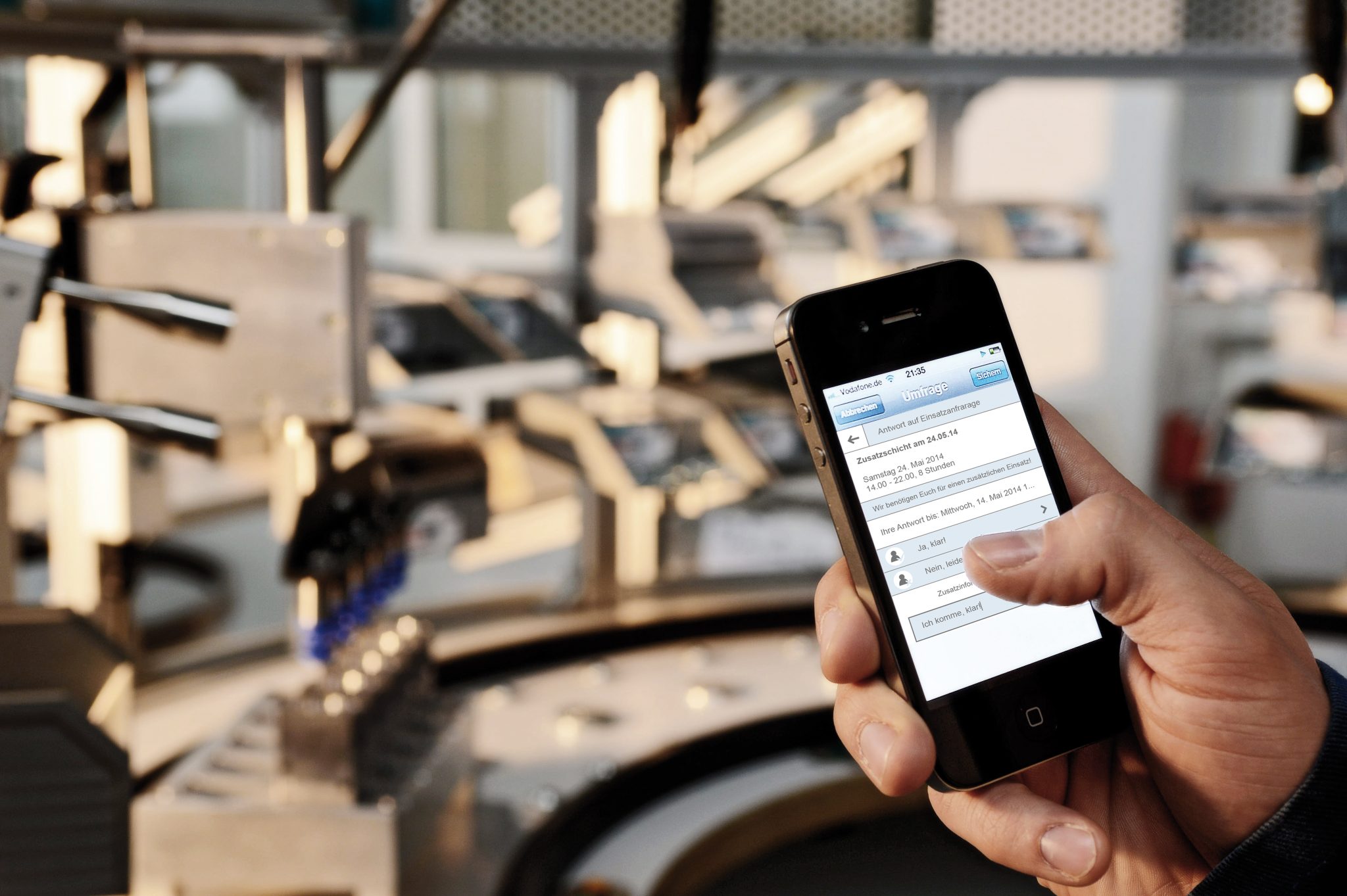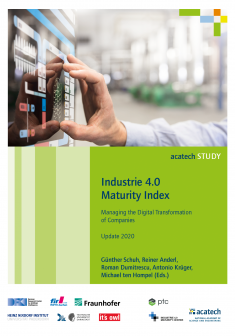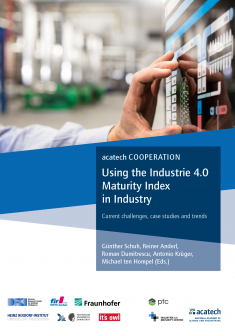New edition of Industrie 4.0 Maturity Index provides guidance for businesses

Munich, 21 April 2020
In recent years, more and more German companies have embarked upon the Industrie 4.0 journey. Developed by acatech and published in 2017, the Industrie 4.0 Maturity Index has often provided an invaluable source of guidance. The study helps businesses to map out their own individual path towards Industrie 4.0. Since it first came out, the publication has been in great demand and has even been translated into Russian. Now, a new edition of the study has been published, together with a companion publication featuring successful case studies. Chairman of the acatech Board of Trustees, Henning Kagermann, will present both publications in a webcast on 22 April.
In normal times, industrial enterprises that have made good progress towards Industrie 4.0 are more flexible, efficient and productive, thanks to their ability to collect and analyse data from connected objects, devices and machines. And even during the COVID-19 crisis, at a time when shop floor workers also need to keep their distance from each other, the benefits of Industrie 4.0 are plain – real-time connectivity makes businesses more resilient by allowing them to keep their operations running while complying with social distancing rules.
Against this backdrop, the new edition of the Industrie 4.0 Maturity Index couldn’t have come at a better time. Companies can use the study to analyse their status quo and formulate their own individual Industrie 4.0 strategy. As well as technological aspects, the Index also considers the organisational and cultural dimensions. Six maturity stages provide a framework for collecting, analysing and utilising data within a business, in an approach that reflects the multidimensional nature of Industrie 4.0 by addressing the interactions between information systems, resources, organisational structure and corporate culture.
Henning Kagermann, Chairman of the acatech Board of Trustees and Global Representative of the Plattform Industrie 4.0, will present the new, updated version of the publication in a webcast on 22 April from 13.00 to 14.00. Together with Christian Hocken of the Industrie 4.0 Maturity Center, he will also take a look at concrete case studies that illustrate how different companies have used the study to successfully implement Industrie 4.0. These case studies are described in detail in the companion publication “Using the Industrie 4.0 Maturity Index in Industry – current challenges, case studies and trends”, which was also published on Wednesday.





